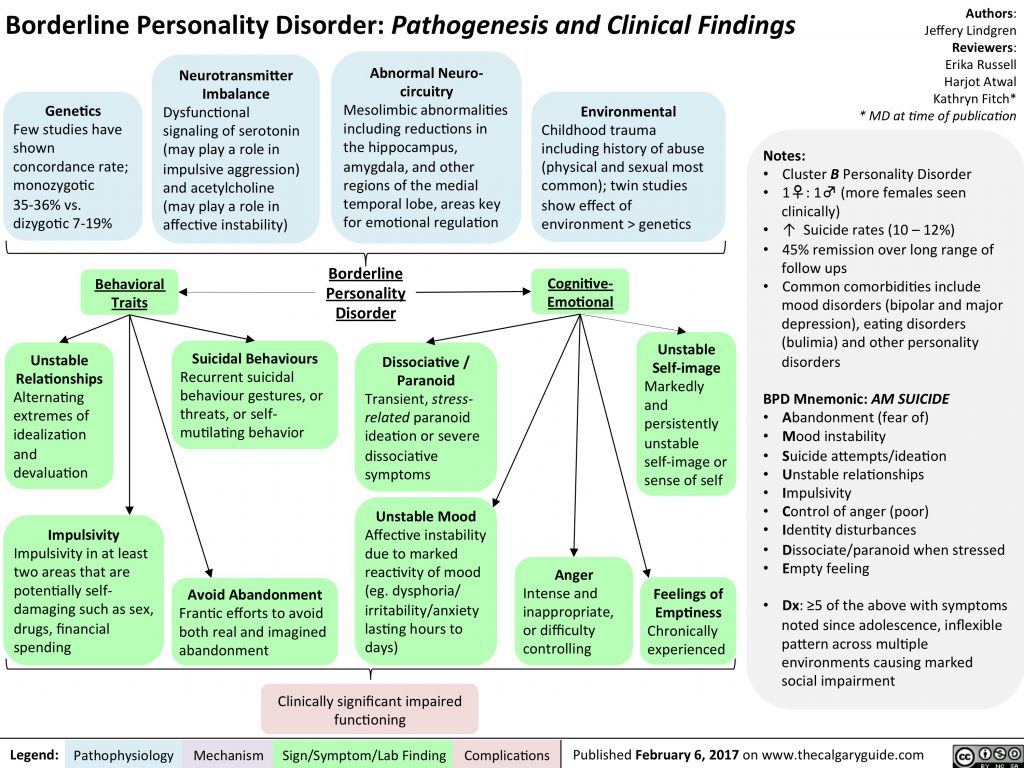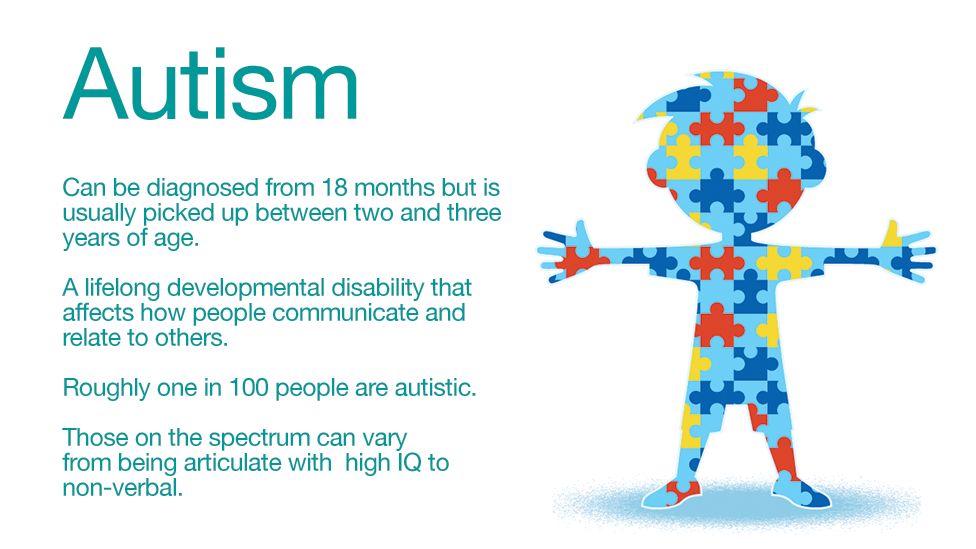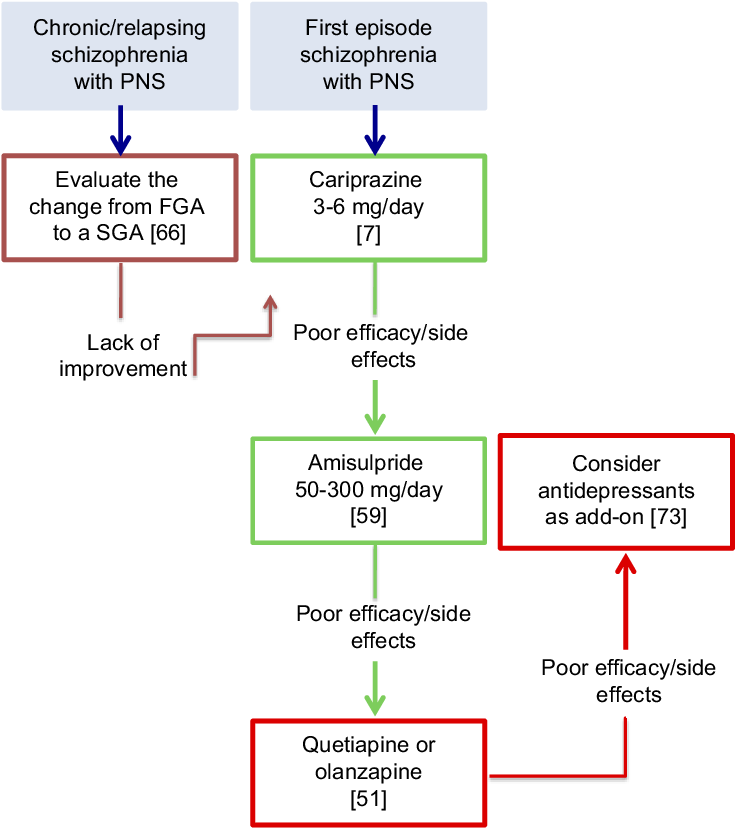Paranoid thoughts bipolar disorder
Symptoms & Strategies to Cope
Psychosis if often described as a loss of contact with reality. People who experience episodes of psychosis often aren’t able to recognize what’s real in the world around them.
Psychosis is a legitimate reality for some medical and mental health conditions, including bipolar disorder. Thankfully, episodes of psychosis are manageable. If you know you experience psychosis, you can be prepared with treatments and coping tools.
Psychosis is a symptom of a condition, not a disorder. People experiencing psychosis may have hallucinations or delusions.
Sometimes, a person with bipolar disorder may experience symptoms of psychosis. This often occurs during a severe episode of mania or depression.
While psychosis is often associated with mental health conditions like bipolar disorder or schizophrenia, it can occur due to other medical conditions and causes.
Hallucinations and delusions can also be experienced as a result of:
- a brain tumor or cyst
- dementia, including Alzheimer’s disease
- neurological conditions such as epilepsy, Parkinson’s disease, and Huntington’s disease
- HIV and other sexually transmitted infections that can affect the brain
- malaria
- multiple sclerosis (MS)
- a stroke
Psychosis in bipolar disorder can happen during manic or depressive episodes. But it’s more common during episodes of mania.
Many people believe that psychosis is a sudden, severe break with reality. But psychosis usually develops slowly.
The initial symptoms of psychosis include:
- decreased performance at work or in school
- less than normal attention to personal hygiene
- difficulty communicating
- difficulty concentrating
- reduced social contact
- unwarranted suspicion of others
- less emotional expression
- anxiety
Symptoms of psychosis in bipolar disorder may include:
- hallucinations
- delusions
- incoherent or irrational thoughts and speech
- lack of awareness
Hallucinations
When people hallucinate, they experience things that aren’t real to anyone but themselves. They may hear voices, see things that aren’t there, or have unexplained sensations.
Hallucinations can encompass all the senses.
Delusions
Delusions are an unshakable belief in something that isn’t real, true, or likely to happen.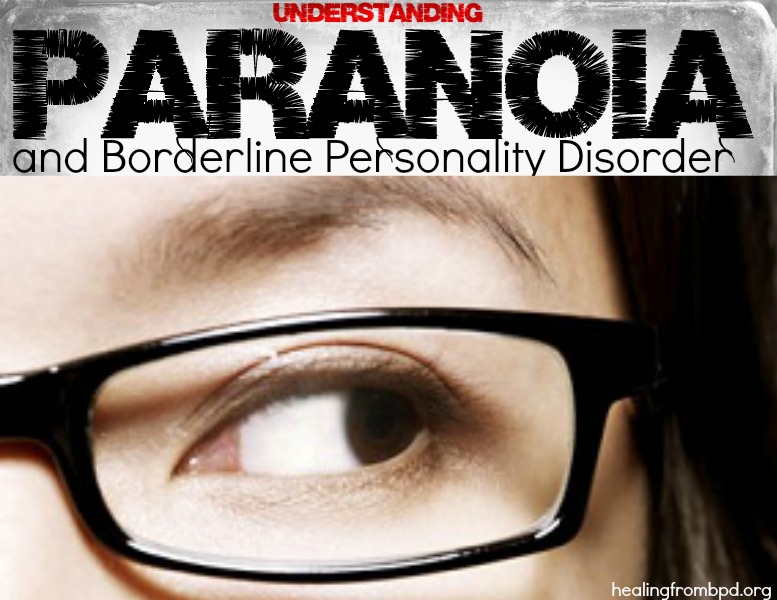
People may have grandiose delusions. This means they believe they’re invincible or have special powers or talents. In bipolar disorder, delusions of grandeur are common during episodes of mania.
If a person with bipolar disorder experiences depressive episodes, they may experience paranoid delusions. They might believe someone is out to get them or their property.
Jumbled or irrational thoughts and speech
People with psychosis often experience irrational thoughts. Their speech may be fast, rambling, or hard to follow. They may move from subject to subject, losing track of their train of thought.
Lack of awareness
Many people experiencing psychosis may not be aware that their behavior isn’t consistent with what’s actually happening.
They may not recognize that their hallucinations or delusions aren’t real, or notice that other people aren’t experiencing them.
There are two types (or features) of psychosis in people with bipolar disorder: mood congruent and mood incongruent.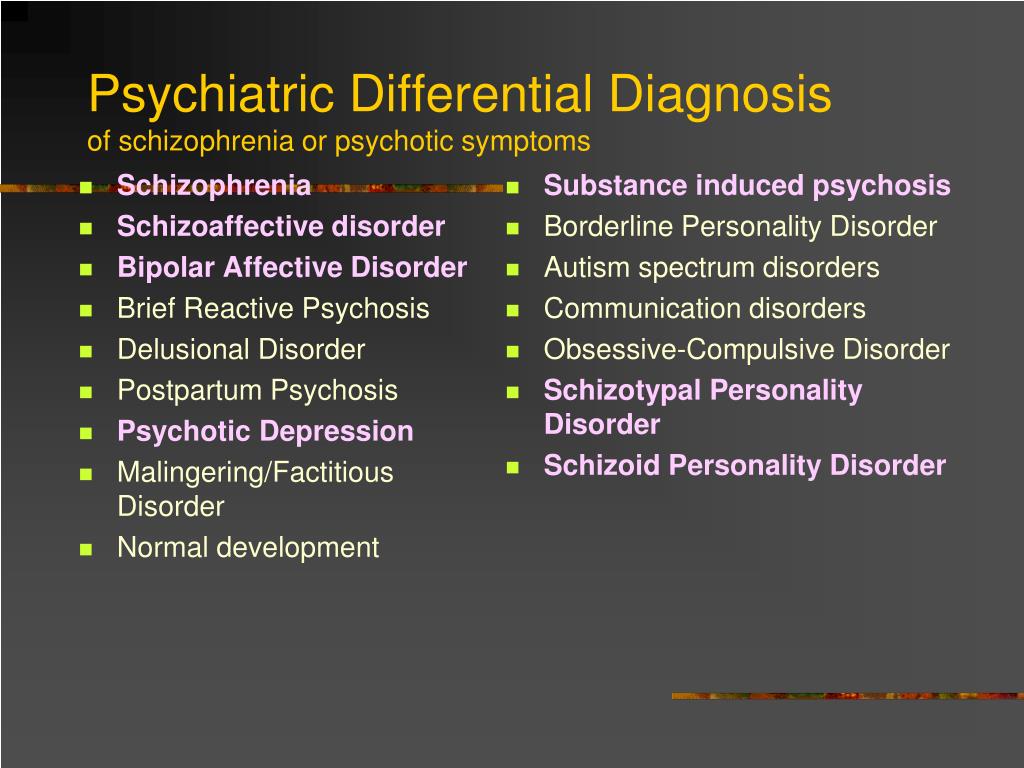 This means symptoms are either amplifying or reflecting your mood before a manic or depressive episode (congruent), or contradicting your mood (incongruent).
This means symptoms are either amplifying or reflecting your mood before a manic or depressive episode (congruent), or contradicting your mood (incongruent).
Sometimes, both features can occur during the same episode.
Mood congruent psychosis
Most people with bipolar disorder psychosis experience mood congruent features. This means that the delusions or hallucinations reflect your moods, beliefs, or current bipolar disorder episode (mania or depression).
For example, in a depressive episode, you might have feelings of guilt or inadequacy. In a manic episode, you may experience delusions of grandeur.
Mood incongruent psychosis
Mood incongruent symptoms are in opposition to your current mood.
This type of psychosis may involve hearing voices or thoughts, or believing you’re being controlled by others. During a depressive episode, you may also not feel guilt or other negative thoughts that are typical during depression.
Mood incongruence may be more severe.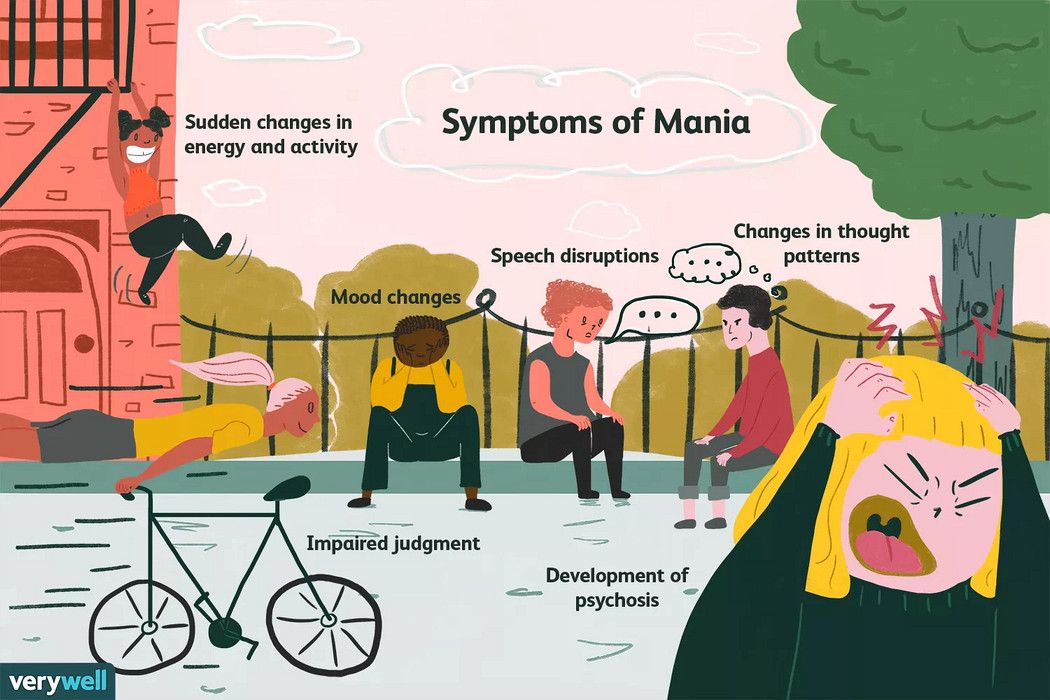 Results of an older 2007 study indicated that people with mood incongruent psychosis in bipolar disorder are more likely to need hospitalization.
Results of an older 2007 study indicated that people with mood incongruent psychosis in bipolar disorder are more likely to need hospitalization.
The exact cause of psychosis in bipolar disorder isn’t well understood. But we do know some factors that may play a role in developing psychosis:
- Sleep deprivation. Sleep disturbances have been associated with lower quality of life in general for people with bipolar disorder and may trigger worse symptoms.
- Sex. Females with bipolar I disorder have a high risk for postpartum mania and psychosis.
- Hormones. Since psychosis has been associated with both childbirth and early signs occurring during puberty, hormones may play a role in developing bipolar disorder psychosis.
- Cannabis. Cannabis is the most frequently used drug among those diagnosed with bipolar disorder. What’s more, some research suggests that the frequency of cannabis use increases in proportion to the risk for psychotic disorders.
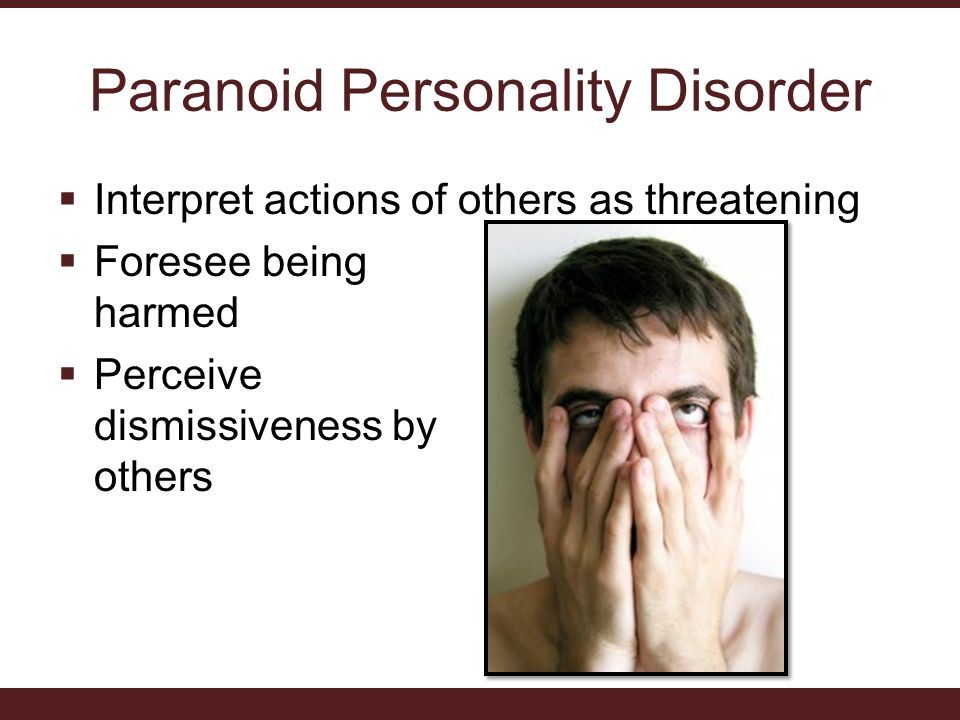
- Genetic differences. It’s been suggested there may be some genetic differences present in both people with schizophrenia, and bipolar disorder.
People who have experienced bipolar disorder psychosis report a holistic approach as the most effective.
This means your treatment might benefit from including:
- Monitoring psychosis on a planner or calendar, and noting your setting, diet, and events before and after the episode.
- Having an accountability partner or support group to advise if you’re at the onset of an episode, or think you may be in the middle of one. Keep your treatment team in this loop as well.
- Avoiding alcohol, which is known to intensify everyday bipolar disorder symptoms and possibly be a trigger for mania and psychosis.
- Developing a routine for wellness that includes consistent sleep, taking medications as prescribed, a whole food diet, and healthy social time.
- Keeping space for your favorite activities that help you stay grounded like a custom playlist, movie, exercise, or what usually gets you laughing.
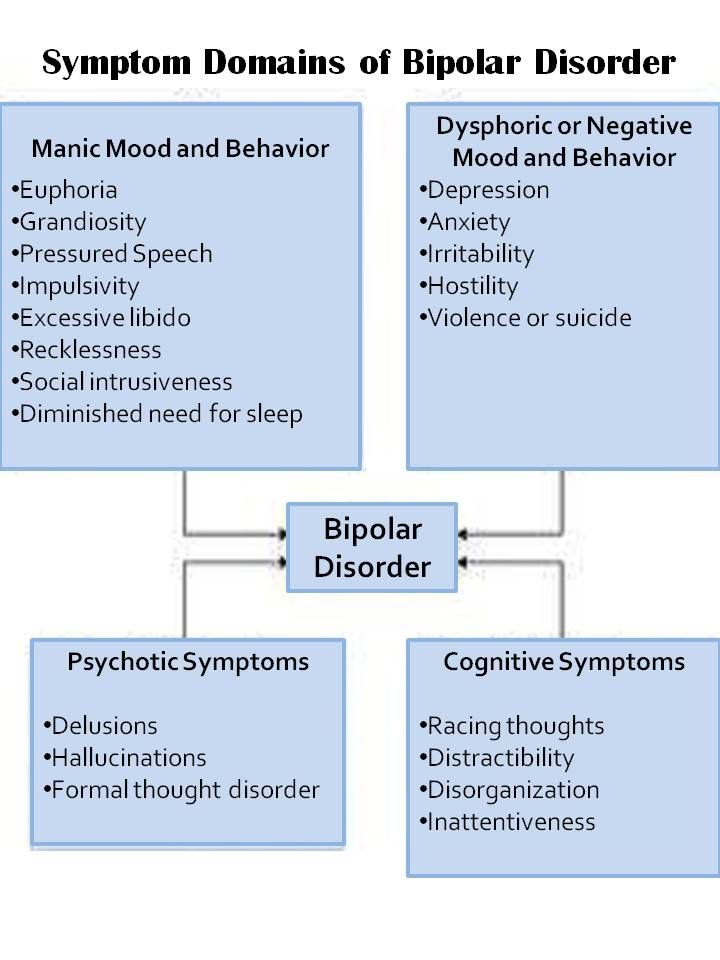
These strategies are recommended alongside the following formal treatments:
- Prescriptions: Your doctor may prescribe mood stabilizers, antidepressants, or antipsychotic medications.
- Psychotherapy: Therapy may include one-on-one counseling, family therapy and education, group therapy, or peer support.
- Electroconvulsive therapy (ECT): You may be offered ECT when medication and psychotherapy don’t lessen psychosis. It’s an outpatient procedure utilized to “reboot” the brain.
It’s not unusual for people to have only one episode of psychosis and recover with treatment. Early diagnosis and creating a treatment plan are important to manage your symptoms and improve quality of life.
Bipolar disorder and psychosis aren’t yet curable, but they’re both treatable. For many people, symptoms can be managed successfully so you can live well and fully.
If a friend or loved one is experiencing psychosis, there are also ways to effectively help them and communicate when they’re having an episode.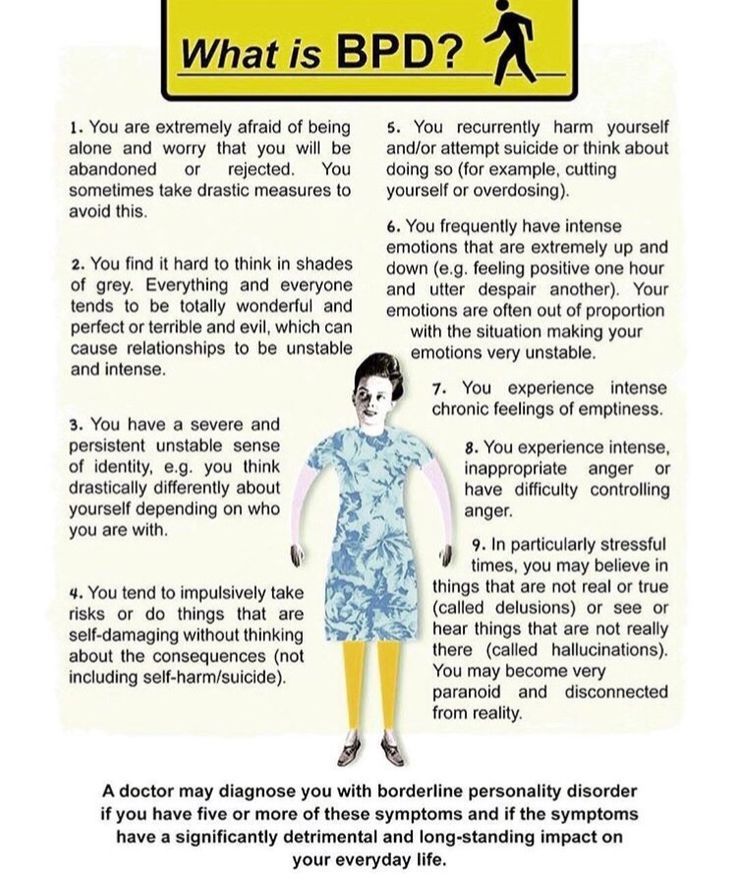
How to communicate with someone experiencing psychosis
Do:
- mirror the same language they use to describe their experience
- speak clearly and in short sentences
- actively listen to validate their experience, but aim to redirect the conversation
- speak privately, without distractions, if possible
- accept if they don’t want to talk to you, but be available in case they change their mind
- be mindful if they’re distressed by the experience
Don’t:
- talk down to the person, challenge, or “egg on” a delusion or hallucination
- verbally or nonverbally judge, disapprove, or argue
- label with combative stereotypes like “crazy,” “psychotic,” “postal,” or “raging”
- try to touch or physically move the person
People with bipolar disorder may experience episodes of psychosis, but thankfully, both psychosis and bipolar disorder are treatable.
With tools, knowledge, and by working with your healthcare team, you can manage your condition and maintain well-being.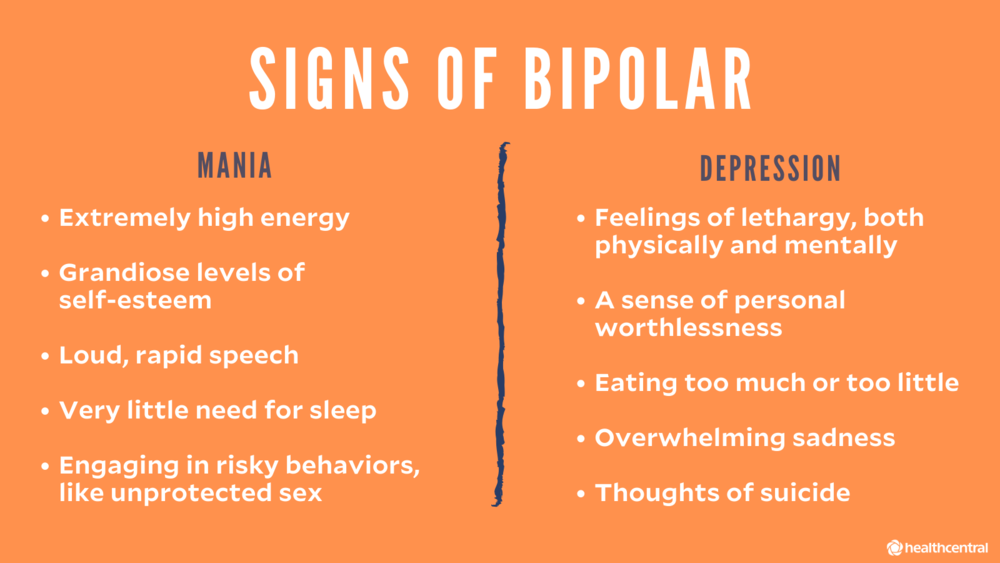
The Healthline FindCare tool can provide options in your area if you need help finding a therapist.
Paranoia in Bipolar Disorder - Bipolar Disorder Center
One of the symptoms of psychosis in bipolar disorder is paranoia, a belief that the world is full of people who are "out to get you." Though many of us tend to use the term loosely in everyday conversation, paranoia is a serious condition for people with bipolar disorder.
The beliefs that come from paranoia are referred to as “persecutory delusions” — that is, beliefs that other people are talking about you, plotting against you, following you, or in some other way literally persecuting you.
Paranoia is not inevitable for people with bipolar disorder. Many people with bipolar disorder experience a wide range of mood swings and other disruptions in their life, but never experience the severe highs or lows that can lead to psychosis and paranoia.
Paranoia is unlikely to be the only symptom affecting a person with psychosis and bipolar disorder.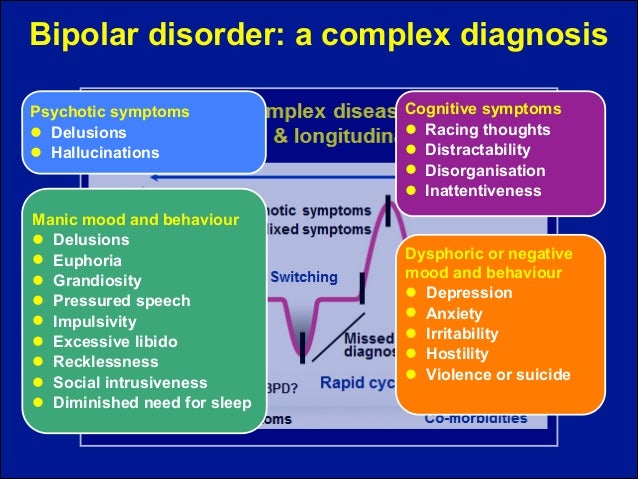 Other symptoms of bipolar psychosis may include:
Other symptoms of bipolar psychosis may include:
- Disrupted, disorganized, or hard-to-understand speech or thought patterns
- Hallucinations
- Unrealistic beliefs
- Difficulty managing daily activities
- Difficulty knowing what is real and what is not
As with many bipolar symptoms, the mechanism behind paranoia is not easily understood. There is some evidence that interrupted sleep — especially insomnia or a prolonged period of getting less sleep than normal — can trigger paranoia. Interrupted sleep is a hallmark of bipolar disorder, particularly when people enter the manic phase and sleep less than usual or not at all.
Managing Paranoia in Bipolar Disorder
“Antipsychotic medications can be useful in reducing paranoia,” says psychiatrist Michael Peterson, MD, PhD, an assistant professor in the department of psychiatry at the University of Wisconsin School of Medicine and Public Health in Madison. Antipsychotic medications can be used temporarily or may be used over a long period to stabilize thoughts and emotions.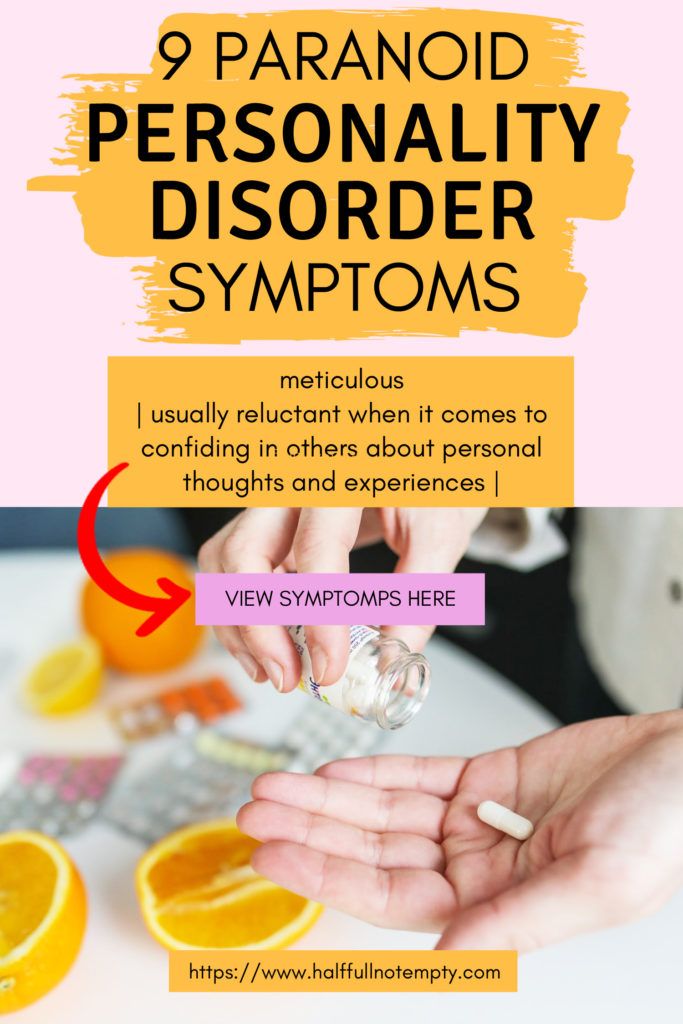
With true psychosis, patients may not be able to question whether their paranoid beliefs are real. Often, their paranoid beliefs are unshakable. In these cases, medical management may be the only way to reduce the strength of these beliefs.
However, according to Dr. Peterson, there are many people whose paranoia is not as fixed. “When people have some insight into these fears and thoughts, cognitive approaches can be useful, too,” he says.
In these situations, options for management include:
- Therapy. Going to therapy and learning how to work with paranoid thoughts may help lessen the paranoia. “An example of this might be rationalizing why the fears may not be real or ways of testing how real these might be,” Peterson explains. Look for a professional trained in cognitive-behavioral therapy or who specializes in working with people with bipolar disorder.
- Social support. “Reviewing these fears with a loved one or trusted friend, in addition to health care providers, can also be useful,” says Peterson.
 Trust is the key, of course. Paranoia has the unfortunate side effect of eroding even the closest relationships if it is not controlled.
Trust is the key, of course. Paranoia has the unfortunate side effect of eroding even the closest relationships if it is not controlled. - Support groups. Look for a suitable support group through a local community mental health center, National Alliance on Mental Illness chapter, or another dedicated bipolar or schizophrenia support group. Remember that it is okay to try out a few support groups until you find one that you are comfortable with.
Paranoia is a distinctly unpleasant experience for people with bipolar disorder. However, it can be controlled, managed, and reduced so that it has less impact on your daily life.
6 Paranoid Thoughts Common to People with Bipolar Disorder - MISTO
The word "paranoid" is thrown around a lot. It is used interchangeably with the characteristic of excessive anxiety. However, this is much more than a common concept.
Paranoia is something that many people with bipolar disorder experience.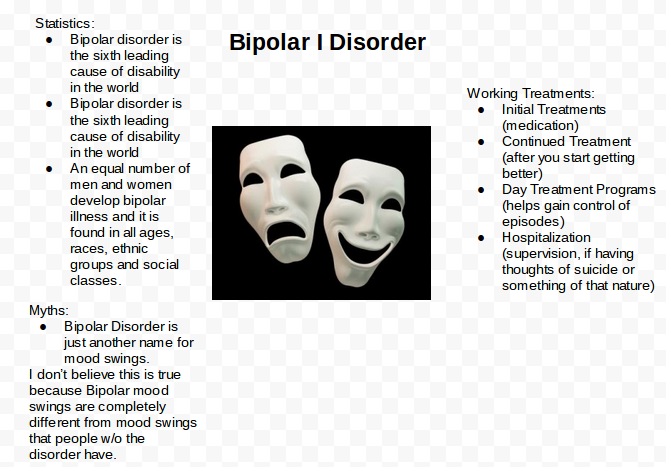 It comes in varying degrees and can be severe or mild. Some people believe and succumb to paranoid thoughts and delusions, while others identify and manage them.
It comes in varying degrees and can be severe or mild. Some people believe and succumb to paranoid thoughts and delusions, while others identify and manage them.
“I started experiencing bipolar paranoia in college. When I made eye contact with any person walking on campus, I immediately thought that this person saw all my problems. I knew people couldn't really read my mind. But I still thought they were doing it.
Then I had a constant need for confidence. I repeatedly asked my friends if they were angry with me. One day I insisted that my friend write to her parents, whom we had just visited. For what? Just to make sure they're not mad at me. And this despite the fact that none of us did anything wrong!” - admitted Elizabeth Cassidy, author of The Mighty.
Paranoid thoughts can make you feel like you're being "dramatic," but you're not. This is a symptom. As happens with any other disease. It's not easy to feel intense anxiety or worry about things that you can't explain to someone you love and cherish.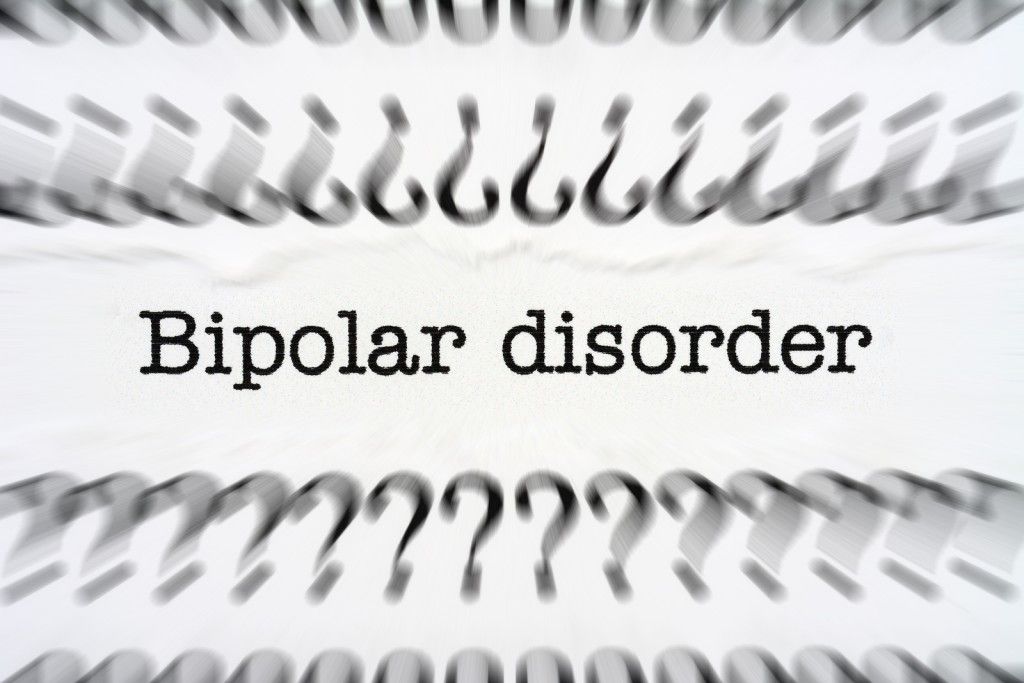
Not every person with an experience of bipolar disorder has paranoid thoughts. But paranoid thoughts can make us feel isolated or misunderstood.
The authors of The Mighty are interested in the experiences of people who live with this problem. So they asked the bipolar community to share their experiences.
So, living with paranoid thoughts means:
Fear of being watched and persecuted
“I feel like someone is always looking at me. Wherever I go, I think there are hidden cameras everywhere.” .
"I feel like I'm being watched by scientists who are studying me for experiments" .
“I am being followed and persecuted. All digital systems are dangerous, especially my phone. Everything I type is also readable. Sometimes it gets so unbearable that I buy a new phone.”
Thinking that people can read your mind
"Whatever I think will somehow be heard.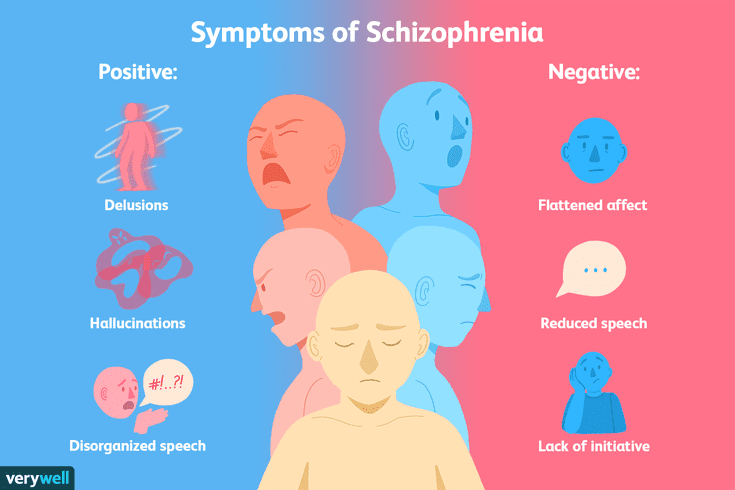 "
"
"I think people can read my mind."
"It seems to me that if someone looks into my eyes, he can "read" my soul and learn all my secrets."
"Sometimes I think my family can read my mind."
Afraid that no one likes you
“Sometimes I think people just 'put up with me' and don't really like being in my company. That everyone is talking bad about me. That they all want me not around."
“I think I'm being talked about and laughed at when I see people just talking and laughing. I think people secretly hate me. I analyze everything that people say, because sometimes it seems that they are discussing me behind my back or trying to hint at something.
Fear of being in immediate danger
“If I hear a strange noise in the house—for example, something falling in another room—I become extremely paranoid, thinking something bad is going to happen.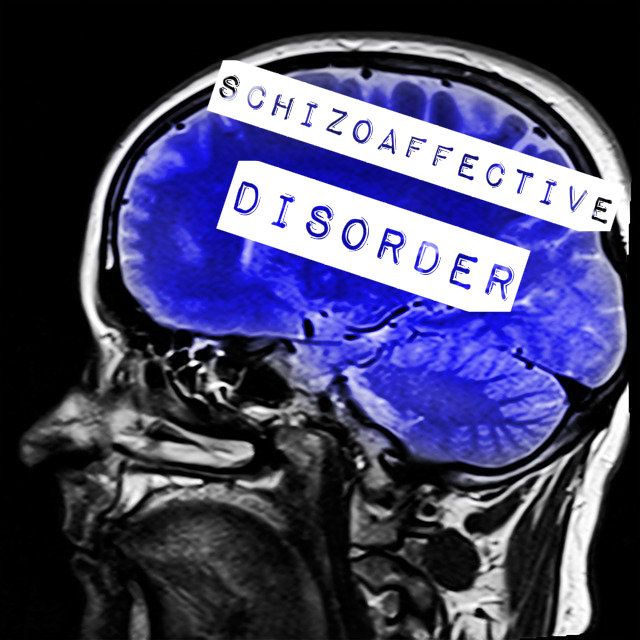 Fire, explosion, or something like that. I usually have to leave the house."
Fire, explosion, or something like that. I usually have to leave the house."
"I'm thinking that the devil is coming for me, or that I'm dying of some terrible disease."
“I have a fear that someone will be waiting for me outside. Sometimes, when I go out to smoke, I have to take a knife with me outside - I am so convinced that there is someone who wants to attack me.
"Sometimes I feel like someone is hiding in my car, waiting to attack me while I'm driving."
"The car behind me seems to be following me home."
Thinking you're a bad parent
“It looks like social services are going to take my kids, even though I'm a great mother, provide and love them very much. This is especially aggravated when I do not have time to tidy up the house.
“Someone is going to take my baby because I am a bad mother. Or that my baby will die if I don't check on him while he sleeps. "
"
“Sometimes I think that my son would be better off without me, that I annoy my friends and that I'm useless at work! And the fact that with age I become an increasingly heavy burden for people.
To think that you will be deceived, betrayed
“My paranoia is that people hate me. It seems to me that they want me dead, and anyone with whom I enter into a relationship will cheat on me.
“Everyone seems to be against me. Everyone secretly hates, being in cahoots. Everyone talks about me behind my back. My husband will cheat or leave me. My parents hate me. And much more".
As you can see, many people experience similar paranoid thoughts. If you know them, you are not alone. Paranoia is one of the many symptoms associated with bipolar disorder and other psychiatric disorders such as schizophrenia, schizoaffective disorder, paranoid personality disorder, and depression with psychotic features.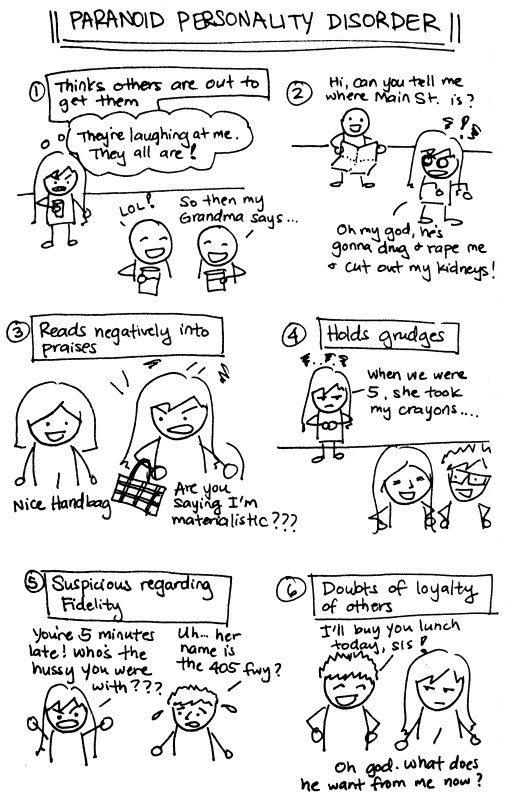 There are other causes of paranoia, such as drug use, brain injuries or tumors, etc.
There are other causes of paranoia, such as drug use, brain injuries or tumors, etc.
Based on The Mighty
how I live with bipolar disorder
This text was written by a reader in the Community. Carefully edited and formatted according to editorial standards.
Daria Borisova
learned that she suffers from bipolar disorder
Author profile
In September 2021, when I was 25, my husband and I emigrated to the United States. Six months later, I was diagnosed with bipolar affective disorder.
I suspect that the disease began to develop earlier, back in Moscow, when we were preparing to move. Then for the first time I felt bad and turned to a psychologist. In general, communication with him helped: it became easier for me. But, as time has shown, not for long.
What is Bipolar Affective Disorder?
Bipolar disorder differs from normal mood swings in the duration of the changes. If a healthy person feels melancholy or inner uplift for several hours, then in a patient with BAD episodes last from several weeks to 3-6 months.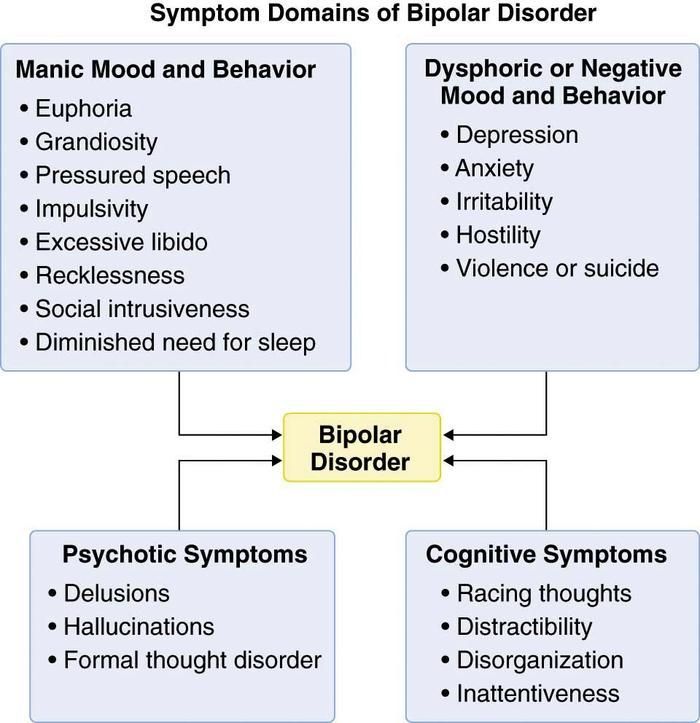
In addition, with BAD, the ups and downs in mood are brighter, they interfere with a normal life and work. During manias, a person sleeps little, talks a lot, and jumps from one idea to another. May buy things that he cannot afford, take risks, engage in promiscuity, be obsessive and aggressive. A milder version of mania is hypomania. In this case, the symptoms are not so bright, so loved ones may not even notice the changes.
During episodes of depression, a person, depending on the severity, may feel increased sleepiness or, on the contrary, insomnia, feel guilty, helpless and irritated. Some people have thoughts of suicide.
It happens that the symptoms of mania and depression are combined in one phase: the patient simultaneously feels a surge of energy and is in a depressed state. Such episodes of BAD are called mixed.
The number of episodes and their order cannot be predicted. In the intervals between exacerbations of the disease, a person usually feels normal.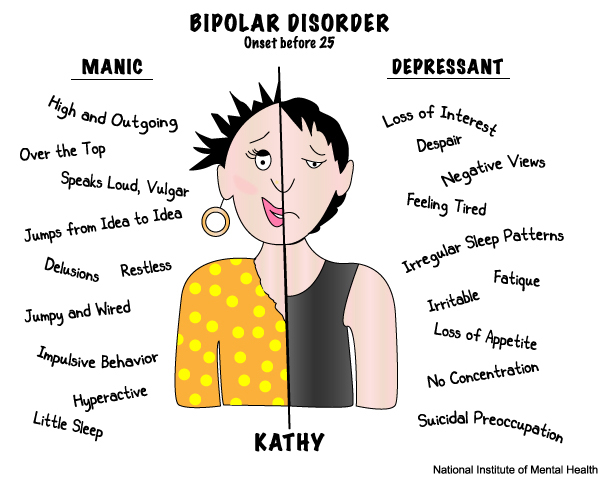
The exact causes of bipolar disorder are unknown. It is believed that the disease develops due to an imbalance in the brain of neurotransmitters: serotonin, norepinephrine and dopamine. These substances are responsible for the "communication" of nerve cells with each other. The risk of getting sick is higher in those whose relatives already suffer from BAD. The average age of onset is 25 years. Although it also occurs in children and adolescents.
There is no cure for bipolar disorder, but with the right therapy, long-term remission can be achieved - a state in which the symptoms of the disorder do not appear.
Patients are usually recommended drug therapy in combination with psychotherapy: normotimic drugs that stabilize mood, antidepressants that help cope with depression, neuroleptics that relieve excessive arousal. Medicines and their dosage are selected by a psychiatrist individually.
Patients receiving care continue to lead normal and productive lives.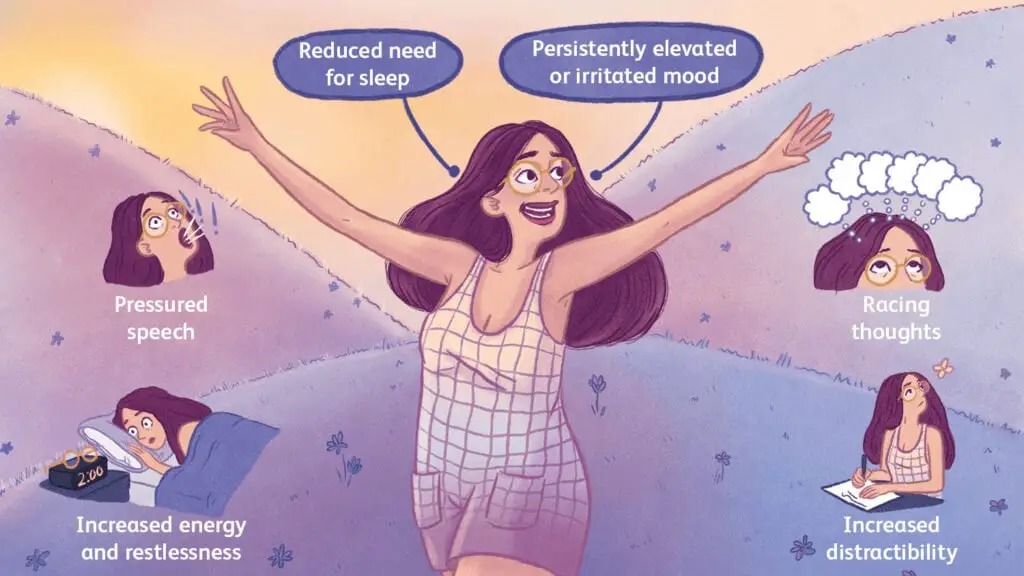 Without treatment, the disorder worsens: episodes of depression and mania become more frequent and become more severe over time.
Without treatment, the disorder worsens: episodes of depression and mania become more frequent and become more severe over time.
Why I went to see a psychologist
In Russia, I worked as a pediatric dentist. After the move, my husband and I set out to earn our living illegally for about a year, and then we had to get a work permit. I planned to enter a local university in order to confirm my qualifications and continue my medical practice in the United States.
To prepare for emigration, I watched videos on YouTube. In them, people who moved to the United States shared the problems they faced after moving. A lot of their stories scared me. For example, they said that illegal workers can be thrown away with pay, that a decrease in social status is difficult to survive psychologically, and many families cannot withstand difficulties after moving and break up. Therefore, six months before the trip, I decided to turn to a psychologist to help me mentally prepare for the upcoming changes.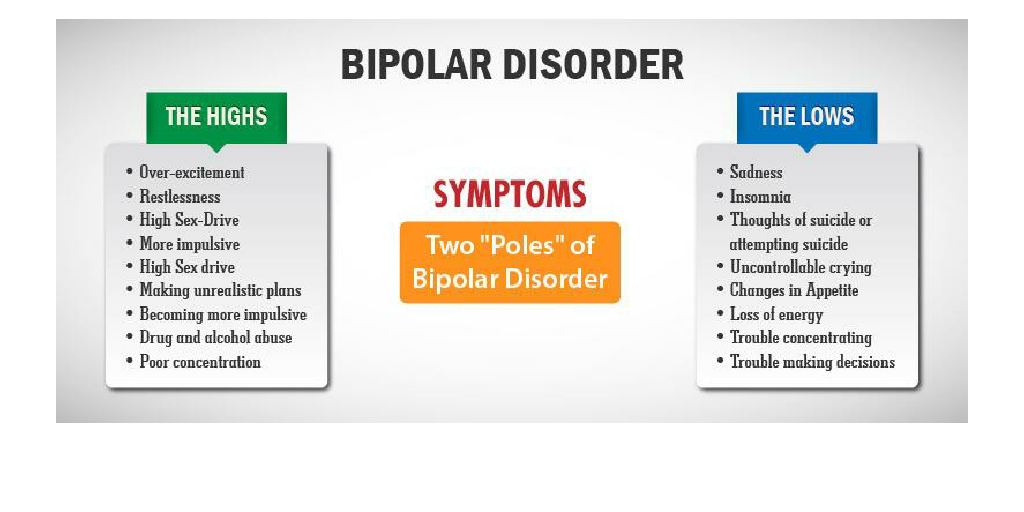
/psychotherapy/
How psychotherapy works
Around the same time, my workload increased at the clinic where I worked. Due to stress, sleep was disturbed: I slept 12, and sometimes 15 hours a day. During periods when she was especially worried, rashes appeared on her body. I was sure that all these problems were “from nerves”, so I hoped that a psychologist would also help with them. I did not turn to other specialists.
I found a psychologist on the recommendation of a friend. At the first appointment, he simply listened to my complaints without offering any tests. The specialist explained the deterioration in my well-being by the desire to get away from reality - he advised me to move more, go out more often and have fun. One session with him cost 5500 R. In total, we had 10 of them.
As a result of the consultations, I got what I wanted: I felt more confident before the trip, I began to worry less. My rashes are gone.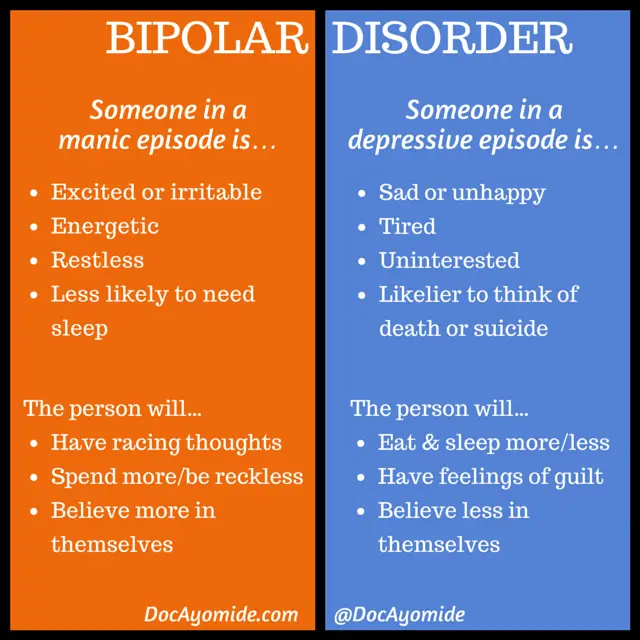 Only sleep did not improve: on weekends I slept both at night and during the day.
Only sleep did not improve: on weekends I slept both at night and during the day.
Now I think that the episode in Moscow was a mild form of depression. And the stress from the move led to the fact that the disorder worsened.
See a doctor
We do not make recommendations in this article. Please consult with your doctor before deciding on treatment. The responsibility for your health rests solely with you.
How I felt worse
In the USA, the most difficult thing for me was the lack of a legal job: I had to give up my specialty and engage in manual labor. It seemed that seven years of study at a Russian university had been flushed down the toilet and hopelessly lost. Nevertheless, the first two months after the move, I felt fine, and later I again felt an irresistible craving for bed.
The condition worsened gradually. At first, I tried to lie down in any free time, especially on the way to work in the car, and later I slept for days on end.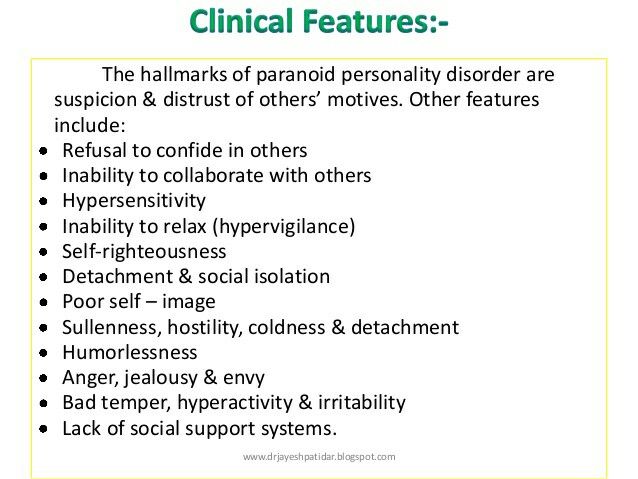
/mental-stat/
How many Russians suffer from mental illness
The world was gradually turning gray, a feeling of emptiness grew inside, my appetite disappeared, I ate only out of inertia. At the same time, the sight of food was disgusting. I stopped taking care of myself, rarely washed my hair, did not do makeup. In shopping malls, I was scared by loud noises and bright lights.
I often didn't know where I was. I could wander around the parking lot for hours, forgetting where I parked.
The new symptoms were much worse than those I experienced in Moscow. If then I would rate the severity of my condition as a three on a ten-point scale, then this time it was a full nine.
In addition, I have suicidal thoughts. Only a complete lack of strength and, oddly enough, thoughts about our cat kept me from attempting suicide. For some reason, it seemed to me that no one but me could take care of him.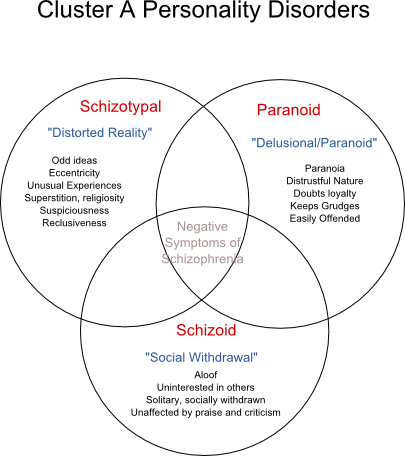
My treatment
AntidepressantsAs soon as the first symptoms of the disease appeared, I complained about them in correspondence with a good friend in Moscow. She offered the help of her friend, a psychiatrist and psychotherapist rolled into one, who was ready to consult me online.
At first I had doubts: I was afraid that the specialist would discuss my well-being with a friend. But then I realized that a professional would not do this, and agreed.
/list/psihiatr/
12 important questions for psychiatrist Kirill Sychev
The first consultation took place on the 20th of November. The doctor treated me very carefully: she asked me about the problems and everything that preceded them. We even dug into my past and discussed childhood traumas. As a result, she diagnosed me with a "depressive episode" and prescribed antidepressants from the group of selective serotonin reuptake inhibitors - escitalopram.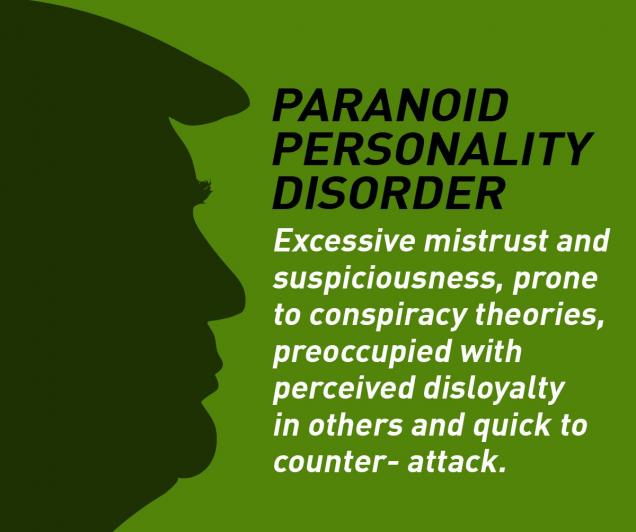
In addition, the psychiatrist recommended not to work at night, to adhere to a certain daily routine and not to take alcohol, as it is incompatible with antidepressants.
There were difficulties in getting the medicine. A doctor from Russia inspired confidence in me, so I did not look for another specialist in the USA. Moreover, I did not have health insurance, and local friends scared me that going to a psychiatrist privately was expensive. I had to ask my friends to buy an antidepressant in Moscow and send it to the USA by Russian Post. I paid 7,000 R for the first batch of the drug, and the shipment cost 3,500 R.
What will happen to drugs in Russia: we analyze 5 groups of psychiatric drugs
An antidepressant that I bought in Moscow I waited for the medicine for about a month. All the while, my condition continued to deteriorate. On New Year's Eve, I could no longer get out of bed and just wanted to die. To reassure my friends and husband, I promised them that I would wait for treatment and not do anything to myself.
The doctor supported me: we did psychotherapy via video link. Used cognitive-behavioral therapy of the third wave. This technique teaches you to accept your feelings, work through negative experiences, take responsibility and not run away from problems.
Sometimes the doctor gave me interesting tasks, such as brushing my teeth consciously. Every day for three minutes I had to concentrate only on brushing my teeth, paying attention to what my tongue, gums and teeth felt. The task was difficult, but it helped to "ground" and not be carried away by thoughts into the clouds.
One session with a psychiatrist cost $40 (2537 R), in total I went through six of them.
In January 2022, I started taking escitalopram, the improvements were not immediate. On the recommendation of the doctor, I gradually increased the dosage, and at some point I noticed that I felt better. And after a couple more weeks, I felt not just good, but great.
It felt like I was moved to a rainbow with unicorns. I stopped sleeping at night, joked and laughed a lot, sometimes just lying on the floor laughing. I was infuriated that others did not share my fun and did everything too slowly.
I stopped sleeping at night, joked and laughed a lot, sometimes just lying on the floor laughing. I was infuriated that others did not share my fun and did everything too slowly.
/list/antidepressant-facts/
10 things to know before taking antidepressants
My mind was spinning like a carousel that I couldn't stop.
Feeling better, I ordered a second batch of an antidepressant from Moscow. I scored 14,000 R. I did not pay for the shipment, because the drug was transferred to the USA with a friend.
I liked the state of euphoria, but it alerted the psychiatrist. She explained that antidepressants provoked a pathologically elevated mood - hypomania. And this is a sign of bipolar affective disorder, or BAD. So I heard my diagnosis for the first time.
The doctor insisted that I stop taking the antidepressant - but not immediately, but gradually reducing its dose. Otherwise, due to the abrupt withdrawal of the drug, depression could return with renewed vigor.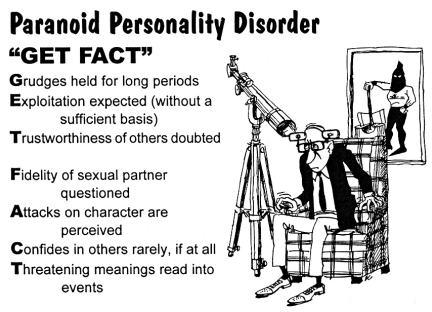 I was also prescribed a normothymic - valproic acid. The doctor warned that drug therapy should not be abandoned, but continued with a new drug, otherwise hypomania could develop into mania - excessive activity, which is often dangerous.
I was also prescribed a normothymic - valproic acid. The doctor warned that drug therapy should not be abandoned, but continued with a new drug, otherwise hypomania could develop into mania - excessive activity, which is often dangerous.
I again had to wait for a drug from Russia and wonder how many more nights I would go without sleep.
My treatment
AntipsychoticsIn the meantime, the symptoms continued to worsen. I behaved like an electric broom: I rubbed the apartment to a shine and was in constant motion. The doctor was forced to interrupt our psychotherapy because I could not calmly sit through the session: I looked at her and laughed for no reason. It's embarrassing to even think about it now.
In addition, I had auditory hallucinations. For the first time, I heard a male voice that asked me to do something with the papers. At first it seemed that my husband was talking to me, at that moment he was nearby. But when I looked at him, I realized that in fact he was silent.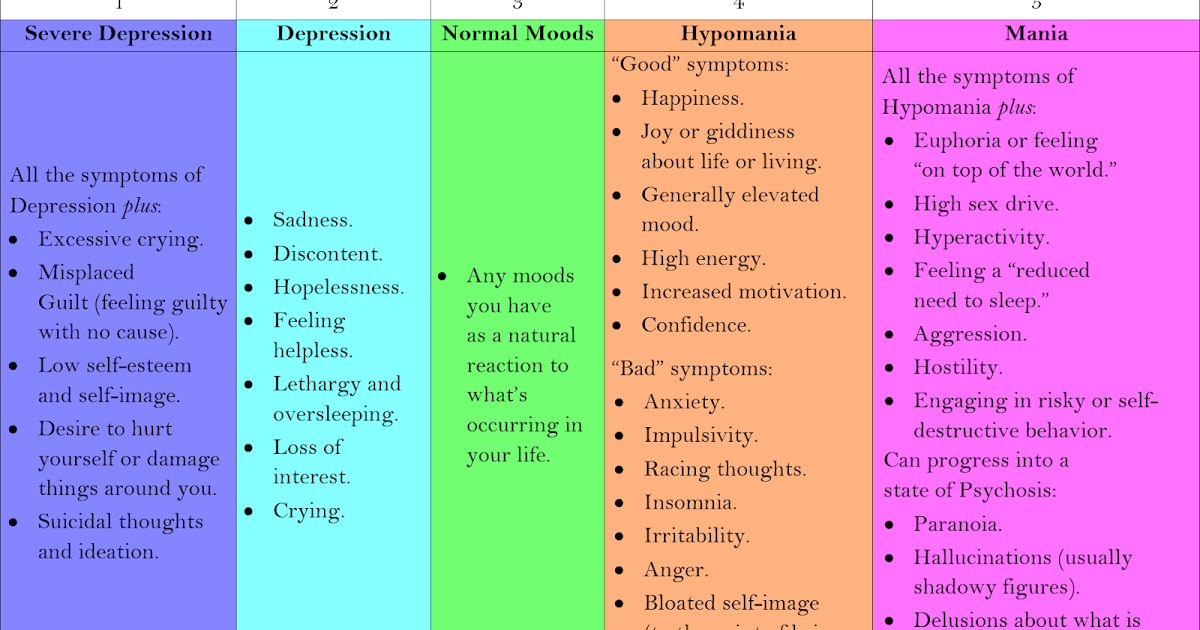 And other people were too far away for me to hear them so clearly. So I realized that it was a hallucination.
And other people were too far away for me to hear them so clearly. So I realized that it was a hallucination.
The sensations were as if I had been stunned, got into my head and said something loudly in the back of my head.
There were three auditory hallucinations in total. After the first one, I immediately wrote to the psychiatrist. She reassured me, said that this happens with BAD. The second and third hallucinations frightened me less: I understood that this was a manifestation of the disease and that it would pass with time.
But I couldn’t wait any longer for the normotimic from Russia - I decided to buy it in the USA. To get a prescription, one had to contact a local psychiatrist. I found the doctor again through friends. It was important for me that he spoke Russian. I know English well, but I was afraid that due to the difference in mentality, the American doctor would misunderstand something and misinterpret my complaints.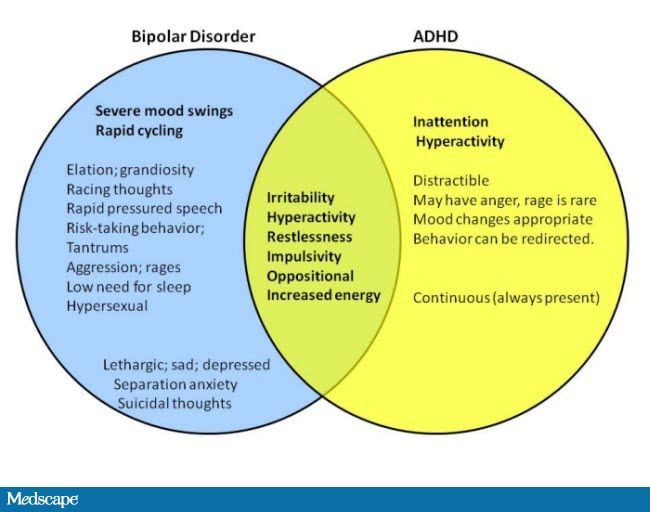
How much does medicine cost in countries popular among Russians
Psychiatric services turned out to be not as expensive as friends said. For the first appointment, I paid 300 $ (19,032 R) - by local standards, this is an acceptable price.
The consultation lasted 40 minutes. The doctor listened to me carefully, asked questions and talked to my psychiatrist from Russia via video link. In the course of the conversation, it turned out that there was a paranoid component in my disorder - the idea of persecution: it seemed to me that those around me only did what they were discussing. On the street, I even often turned off the sound in my headphones to check if this was the case. I myself considered this behavior normal, so I didn’t tell the doctor about it before.
The specialists agreed that it would be better to start my treatment with the atypical neuroleptic quetiapine. This drug was supposed to remove excessive excitement. Since I did not have health insurance that would cover my treatment, the doctor prescribed a cheaper generic.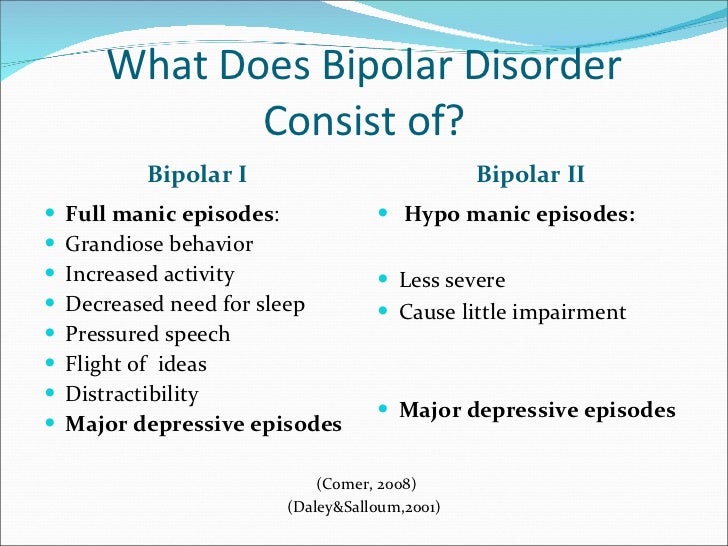
The prescription was electronic, the doctor sent it to the pharmacy, from where they later called me and sent an SMS that the order was ready for delivery. I drove up in a car to a special window, like in Makavto, gave my last name, date of birth, and received the drug. A jar of pills for 30 days cost $45 (2855 R).
There are two drugs in the photo: quetiapine and valproic acid, which I was prescribed later. In American pharmacies, the prescribed amount of medicine is dispensed in jars, and not in factory packaging. Instructions are attached to the jarsWhy I refused treatment, but returned to it again
The psychiatrist promised that the side effects from the antipsychotic would not be severe and I would not have problems driving a car. I specifically clarified this nuance during the consultation, because at that time I worked in delivery.
As it turned out, the doctor was wrong. The new drug made me so sleepy that I didn't dare to drive. In addition, my head began to spin.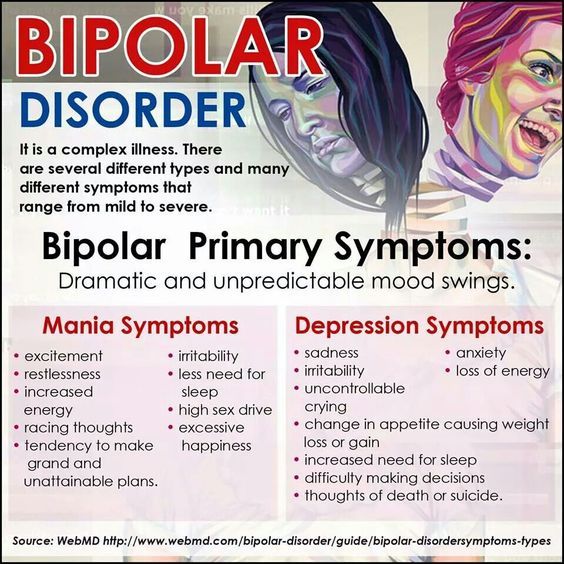 It felt like the ground was moving underfoot in layers, like during an earthquake. Paranoid thoughts intensified: when I went into a cafe to pick up a delivery order, it seemed to me that everyone turned around and discussed how drunk I was - that's exactly how I felt at that moment. I was also worried about nausea, bloating and stomatitis.
It felt like the ground was moving underfoot in layers, like during an earthquake. Paranoid thoughts intensified: when I went into a cafe to pick up a delivery order, it seemed to me that everyone turned around and discussed how drunk I was - that's exactly how I felt at that moment. I was also worried about nausea, bloating and stomatitis.
I went to the American psychiatrist again to complain about the side effects and find another medication. The doctor said that since I'm visiting him for the second time in a month, the consultation will cost $100 (6344 R). At the same time, for the next ones, I will again have to pay $300 (19,032 R). (1903 P) for a jar. By that time, I was very tired of the side effects of quetiapine. And in the instructions for the normothymic, so many new side effects were listed that I got scared and did not take it.
I decided to give up all medications and "treat" with an exclusively healthy lifestyle. I did not discuss my intentions with the American psychiatrist. And the Russian, with whom we continued to correspond, was simply put before the fact. The doctor could not dissuade me from this step, because she was on vacation and she did not have access to the Internet.
And the Russian, with whom we continued to correspond, was simply put before the fact. The doctor could not dissuade me from this step, because she was on vacation and she did not have access to the Internet.
In the same period, I started reading the book by Masha Pushkina and Evgeny Kasyanov "Bipolar Disorder: A Survival Guide for Those Who Often Don't See the White Line". I devoured it in just one day.
The authors provided strong evidence in favor of drug therapy for bipolar disorder. I realized that I got excited about refusing the medicines, and again contacted the doctor from Russia, apologized and asked her to help me resume treatment.
The book described the experiences of people who have traveled the same path as me. After reading it, I felt that I was not alone and cheered up. The price of the electronic version on Litres: 299 RMy treatment
Normotimics My "rebelliousness" lasted only a few days, so I did not have time to feel worse. When I started taking valproic acid, I experienced relief: it did not cause any side effects, but it evened out my mood. Gradually, we even increased the dosage.
When I started taking valproic acid, I experienced relief: it did not cause any side effects, but it evened out my mood. Gradually, we even increased the dosage.
Until I entered the intermission - the period between exacerbations of the disease, when a person feels normal. But bright glimpses in my state happen more and more often.
Valproic acid helps keep your mood in the normal range without going into plus or minus.
For some time with a Russian psychiatrist, we selected the minimum dose of an antipsychotic to improve sleep. But now we plan to finish taking the drug: it has already coped with its task. In addition, there is a suspicion that because of him I gained about eight extra pounds in two months of treatment. This also became a reason for cancellation.
/list/psychoterapevt/
10 important questions for psychotherapist Sergei Divisenko
In a few months we will resume psychotherapy. So far, we communicate with the Russian doctor only via WhatsApp: several times a week, she finds out how I feel and, if necessary, adjusts the doses of the drugs.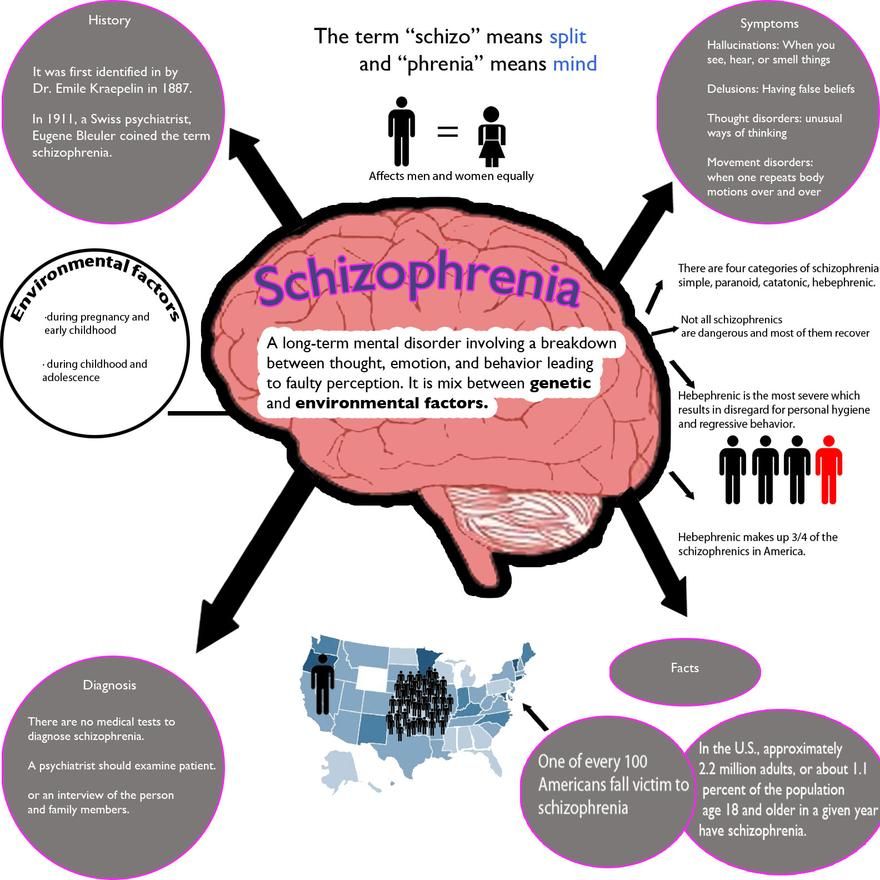 When I need to clarify something about an illness, side effects of drugs, I ask for a consultation for 30-40 minutes. I pay for every $20 (1269R). During the entire observation period, I took two or three repeated consultations with the doctor.
When I need to clarify something about an illness, side effects of drugs, I ask for a consultation for 30-40 minutes. I pay for every $20 (1269R). During the entire observation period, I took two or three repeated consultations with the doctor.
How BAD affected my life
The illness affected my work and studies. All this time I had several jobs, one of which was delivery. At some point, it was hard for me to drive because of drowsiness, so I only helped my husband: I took orders, and we delivered them together.
My husband is my main support and support. It helps me fight the disease and track changes. My friends also support me. I am grateful to them for not turning away from me when they found out about the diagnosis. Some relatives decided that I invented my illness and was actually healthy. I think that the reason for this is the stigmatization of mental disorders. It is unpleasant for people to realize that their loved one is mentally ill. In general, I can understand them: while I myself am in the stage of accepting this fact.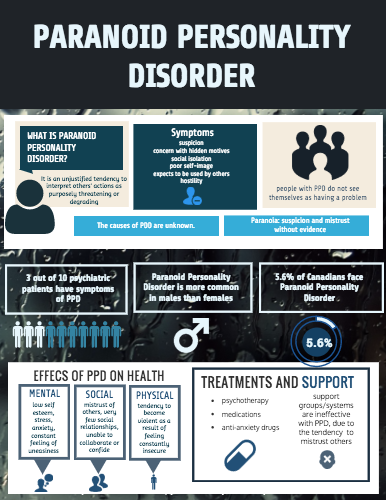
/shizofreniya/
How much does it cost to support a relative with a mental disorder? Previously, I planned to receive letters of recommendation and collect a package of documents by September 2022. And now I've relaxed and I'm going with the flow - I'll pass the exams when I'm ready. So far, I have purchased a program for preparing for tests and I am going through it in a comfortable mode so as not to overload myself. I assist a dentist in the dental office, and my hands shake from time to time, although not much. I assume that this is a side effect of the normotimic - at least the doctor warned about this. Perhaps, because of him, I feel tired, which also affects the work.
Bipolar disorder has definitely changed my lifestyle. I gave up working at night, stopped drinking alcohol, started playing sports, and keep a daily routine. I do not take stimulants: coffee and energy drinks. Eat healthy food whenever possible.
I have become more responsible towards myself.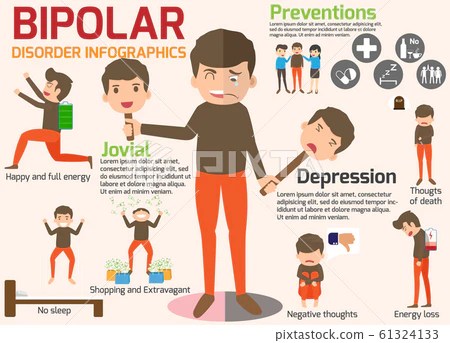 Now I know that in any situation, I will first of all think about my health.
Now I know that in any situation, I will first of all think about my health.
Expenses
Almost five months have passed since my first visit to a psychiatrist. During this period, I spent money on medicines, psychotherapy sessions, consultations of Russian and American doctors. In Moscow, she paid for the services of a psychologist.
In the US, I was given prescriptions that allow me to buy medicines at the pharmacy three times. Then you will need to contact an American psychiatrist again to get new appointments. His tricks will cost $300 (R19,032). For new psychotherapy sessions with a Russian doctor, I will pay $40 (2537 R).
At the moment I have spent 79,500 R and $815 on treatment
| Expenses item | Spending |
|---|---|
| Psychologist sessions in Moscow | 55 000 R |
| Drugs bought in Russia | 24 500 R |
| American psychiatric consultations | 400 $ (25 736 R) |
| Psychotherapy sessions | $240 (R15,225) |
| Consultations of a Russian psychiatrist | 100 $ (6344 R) |
| Drugs purchased in the US | $75 (R4758) |
Expenditures
expenses
Psychologist Sessions in Moscow
55 000 R
Bought in Russia
24 500 R
Consultations of the American Psychiatrist
400 $ (25 736 r)
Psychotherapy sessions
222 240 $ (15,225 r)
Consultations of the Russian psychiatrist
$ (6344 r)
Preparations purchased in the USA
[[75usd: 47 Russia inspired58]]
History of the disease.